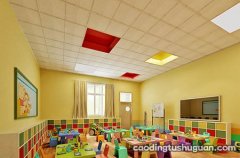◆ 句中含有be动词时:
肯定句: 主语+be + 其他
否定句: 主语+ be + not + 其他
一般疑问句: Be +主语+其他 +?
特殊疑问句: 疑问词(what / who / when / where) + be +主语 + 其他 +?
I am a teacher. You are right.
She is 16 years old. My father is at home.
The students are playing games. My teacher was ill yesterday.
There is a picture on the wall.
There are two books on the table.
★ be动词用法歌:
我用am,你用are,is 连接他她它 。 单数名词用is,复数名词全用are 。
变疑问,往前提,句末问号莫丢弃; 变否定,更容易,be后not莫忘记;
疑问否定任你变,句首大写莫迟疑 。
★ be动词作谓语,它后面一般跟名词、形容词或介词短语 。
2、助动词的用法 。
英语句子按正常语序是“什么人或事物” + “做什么”,即,我们常说的“主语 + 谓语 + 其他” 。
① 主语为I 或复数名词、代词时:
肯定句: I / We / They / The students + 动词原形 + 其他 + 。
We watch TV every night.
变否定: 主语+ don’t + 动词原形 + 其他 + 。
We don’t watch TV every night.
一般疑问句 Do + 主语 + 动词原形 + 其他 + ?
Do you watch TV every night?
Yes, we do. / No, we don’t.
特殊疑问句:疑问词 + do + 主语 + 动词原形 + 其他 + ?
How often do you watch TV?
② 主语为单数名词或代词时:
肯定句: 主语 + 动词第三人称单数形式 + 其他 + 。
He watches TV every night.
否定句: 主语+ doesn’t+动词原形+其他+ 。
He doesn’t watch TV every night.
一般疑问句:Does + 主语 + 动词原形 + 其他 + ?
Does he watch TV every night?
Yes, he does. / No, he doesn’t.
特殊疑问句:疑问词 + does + 主语 + 动词原形 + 其他 + ?
How often does he watch TV?
③ 过去时的句式(当句子时态为过去时时, 动词用过去式,不受主语单复数的影响)
肯定句: 主语 + 过去式 + 其他 + 。
He / We got up early every morning last year.
否定句: 主语 + didn’t + 动词原形 + 其他 + 。
He / We didn’t get up early every morning last year.
一般疑问句: Did + 主语 + 动词原形 + 其他 + ?
Did he / you get up early every morning last year?
Yes, he / we did. / No, he / we didn’t.
特殊疑问句: 疑问词 + did + 主语 + 动词原形 + 其他 + ?
When did he / you get up every morning last year?
英语中be动词有哪些,他们分别怎么用? be是一个多功能动词,在初级英语里可见四种用法:
功能一,系动词be
be为连系动词,中心词义是"是",句型为"主+系+表"结构 。 be的形式常用am, is, are(现在式);was, were(过去式);will/can/may/must be(助动词/情态动词+原形);have/has/had been(助动词+过去分词)等 。 如:
To help animals is helping people.(一般现在时)
The twins were very busy yesterday.(一般过去时)
It will be sunny tomorrow.(一般将来时)
She has been ill for over a week.(现在完成时)
功能二,助动词be
助动词be,无词义,辅助主要动词一起在句中作谓语动词 。
用法如下:
1. be+doing:构成进行时态,有现在和过去两种进行时态 。
如:
The girls is reading and copying the new words now.
Young Tom was always asking questions and trying out new ideas.
2. be+done:构成被动语态(主语是动作的承受者,done必须是及物动词) 。
如:
Tea is grown in my hometown.(一般现在时的被动语态)
This building was built three years ago.(一般过去时的被动语态)
Our classroom has been cleaned and tidied already.(现在完成时的被动语态)
How could this kind of cakes be made in your home?(含情态动词的被动语态)
That is a day never to be forgotten.(动词不定式的被动语态)
推荐阅读
- 学习知识|英语专业有哪些,商务英语太难就业了
- 学习知识|不及物动词有哪些,英语常见不及物动词
- 娱乐知识|青云志的主角是谁,青云志人物介绍大全
- 娱乐知识|欢乐颂的陈家康是谁
- 历史地理知识|冀南新区合并哪些村庄
- 历史地理知识|中国的州字城市有哪些
- 历史地理知识|成巴高速有哪些出口,成巴高速服务区充电站
- 历史地理知识|乐山一职中有哪些专业,乐山一职中分校区
- 历史地理知识|全国二线城市有哪些,老二线城市有哪几个
- 历史地理知识|南湖公园在哪里,天津南湖公园在哪里









